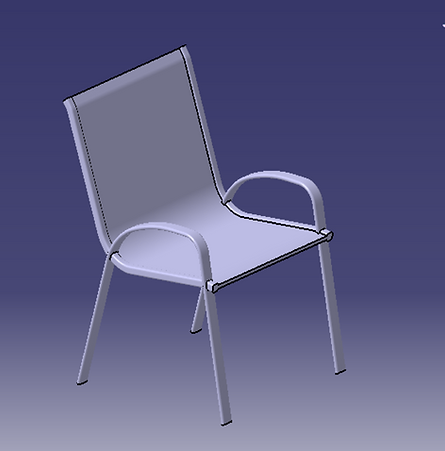Stress Analysis

Two basic but similar household chairs you may find in any department store
Purpose:
We chose to model two different standard household chairs, in order to examine the stress and displacement being applied to the structures when a form of loading is applied
Process:
Each chair has a similar geometric design with the same loading application. The stress dispersion can be modeled using Solid Works and a visual CAD model the group members created in CATIA. In this static analysis, the only determining factor for failure is if the loading applied to the object causes the maximum stress to exceed the yield strength of the material. However, no matter how much force is being applied, the object will not break when being utilized in Solid Works. Therefore, the purpose of studying the object is more important than the object itself
CAD Chair Models
Chair 1
Chair 2


Mesh being applied as normal triangular elements with fixed geometry on the legs and a distributed force being applied over the seat of each chair to simulate the weight of someone seated
Chair 1



-
After running the analysis we were able to conclude the exact location of maximum stress being applied to the chair
-
The max stress is in the joint of the chair where the leg and the seat meet, it can be seen by the red location highlighted by Max stress

By moving onto probing different locations around the max stress, we are able to identify the dispersion of stress throughout the joint
Chair 2

For the second chair, the max stress was in a similar location, however due to the geometry the stress was much smaller and dispersed across a smaller area

Once again, by probing different locations around the max stress, we are able to identify the dispersion of stress throughout the joint, which was much smaller than chair 1
Conclusion:
Results: (Mega Pascals)

The last steps we took were adding a more redefined mesh to the exact location of max stress for each chair. By doing this, we were able to gain a more accurate representation of the stress dispersion